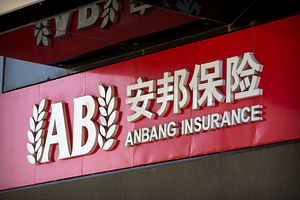On June 22, the China Banking and Insurance Regulatory Commission (CBIRC) announced on its website that Anbang Insurance Group — the Chinese financial conglomerate that purchased the luxury Waldorf Astoria hotel in New York in 2014 — had already been brought under state ownership as of May 11.
According to the announcement, the China Insurance Security Fund (CISF) — a nonprofit state-owned corporation established by the Chinese financial regulators in 2008 — now owns 98.23 percent of shares in Anbang. The rest of the shares are owned by Anbang’s two long-time old shareholders, SAIC Motor Corporation and China Petrochemical Corporation — both happen to be state-owned enterprises, too.
Notably, Anbang’s equity structure used to be highly complicated and even messy. Before the Chinese government took over Anbang in February, a total of 39 companies — including SAIC Motor Corporation and China Petrochemical Corporation — controlled the company.
According to the investigations done by multiple news media outlets, including The New York Times, 37 of those shareholding companies are “in turn owned by a welter of shell companies, many with similar names and addresses of common owners” — all related to Anbang’s founder Wu Xiaohui or his relatives.
Now as the 37 shareholders have been kicked out, the ties have been completely cut between Anbang and Wu — the once high-flying Chinese tycoon who now faces a prison sentence.
As The Diplomat has been closely following, on May 10, Wu was found guilty of embezzling about $1.6 billion and illicitly raising $10.2 billion in capital by the Shanghai Municipal No. 1 Intermediate People’s Court. He was thus sentenced to 18 years in prison, and his property, worth 10.5 billion yuan (about $1.6 billion), was confiscated.
Based on the latest announcement, the official transfer of Anbang’s ownership might have been conducted alongside that sentence, despite the fact that Wu decided to appeal, maintaining his innocence, in late May.
In April, the CBIRC allowed China Insurance Security Fund to inject 60.8 billion yuan ($9.7 billion) into Anbang through an equity transfer. This equity injection, according to the CBIRC, was “to ensure that Anbang has sufficient solvency, maintain the company’s stable operation, and effectively protect the interests of insurance buyers.”
It’s particularly worth mentioning that the CBIRC repeatedly — both in February when the government took over Anbang and in April when the equity was injected — promised that the financial authority will “actively introduce high quality social capital,” “ensure the Fund a safely and orderly exit,” and, most importantly, “maintain Anbang as a private enterprise.”
If Chinese financial authority can keep this promise, the “nationalization” of Anbang (as some media outlets referred to it) will be temporary. However, Wu’s control over Anbang is definitely gone forever.

































